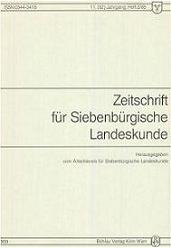

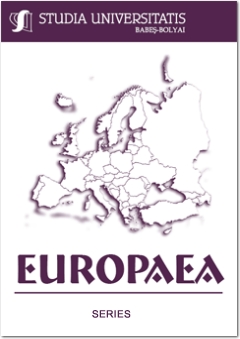
Keywords: crisis; finance; spillover effects.
Countries from all over the world are taking measures in order to counter the effects of the global financial crisis, including stimulus packs, temporary actions, the acceleration of implementation of previous measures or all the measures at the same time. It is for sure that the crisis is not coming to an end despite all these measures and some experts are concerned regarding the size and the length of the crisis. In this paper we will refer to the effects of the global financial crisis, needed measures to counter its effects and potential influence of the crisis on Romania.
More...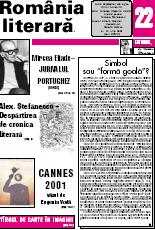
Keywords: Radio Free Europe: the cultural shows of Monica Lovinescu and Virgil Ierunca;
The author talks about two great “voices” (Monica Lovinescu and Virgil Iernuca) who, during the difficult years of the communist regime, had the courage to bring up the problems faced by the Romanian writers. Z. Ornea describes some unsuccessful attempts to murder them, all ordered by Nicolae Ceausescu. The second part of the article is a review of Ms. Lovinescu’s volume of memoirs, in which she talks about important Romanian cultural personalities whom she met in Paris.
More...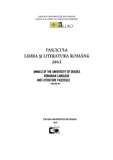
Keywords: postmodernism; experimentalism; textualist experiment; contemporary Romanian literature.
The postwar experiment cannot be defined however without referring to the political aspects of the period: the radicalization and the atomization imposed by experimentalism are opposed to the dominant narrative of the political system, dominated by unity. The game between the experimentalist textualism of the 80’s and the political power is illustrative in this regard, considering that the utopia of power is connected to the idea of unity. The 80’s generation of writers imposes an integration of the previous experiments but also their radicalization towards forming a new paradigm; the textualist experiment is a continuation of self-reflexive experiments, which had been initiated by the prose writers belonging to the Târgoviste group.
More...Keywords: body; dying; love; suffering; other
Temporality is one of the fundamental conditions by which we recognize ourselves as individuals. If our life is defined by a running ahead toward a possible temporal living, death is an indeterminate certainty that we are aware of every minute. But living and dying are not purely individual phenomena. Since the passage between past and future also implies a face-to-face relationship between people as a starting point for value and truth, time is also intensity, depth in the presence of the other. Perceived as a reality that breaches someone’s individuality by its horror and absence of meaning or as the imperative call of the other, death implies a community dispersed into singular beings dependent on each other, aware of the primordial condition of their mutual existence. The sharing of this experience is the expression of a foundational responsibility. The relationship with alterity means finding oneself under a bond in which love often has the last word, this universal, human law responding to the epiphany of the face.
More...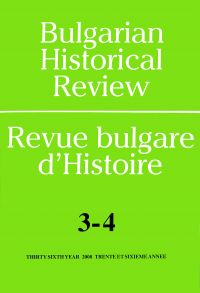
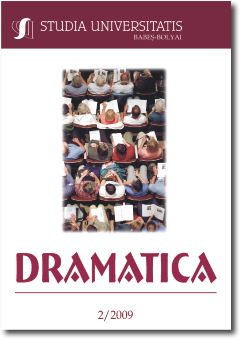
Keywords: The Threepenny Opera; Philanthropy; Beggars Opera; beggars; charity; indifference; money; Pepe; Peachum; Nae Caranfil; Bertolt Brecht.
This essay is an overview on the resemblances between two characters: Mr. Puiut, Pepe one of the main characters in Nae Caranfil’s movie: Philanthropy and Mr. Jonathan Jeremiah Peachum a character in Bertolt Brecht’s The Threepenny Opera. It is an attempt to bring to the surface the universal way of seeing a side of every society that is ignored and overlooked: beggars. In the organized hierarchy of the world of the beggars these characters appear as the masterminds behind the curtain. They have similar ways of seeing the world and human emotions and values like charity, indifference, morality and last but not least money. Although they belong to different societies in more than half a century away they are, surprisingly, very much alike. The present work is just the starting point for a more profound and in-depth analysis.
More...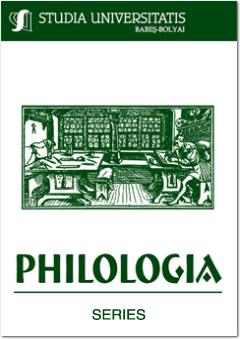

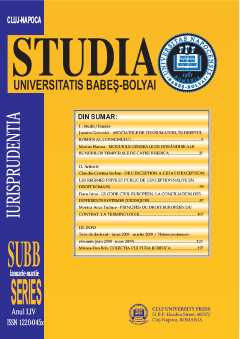
Keywords: day labourer; beneficiary; casual work; individual employment contract.
The present paper analyzes the legal regime of the day labourer, the juridical relation between the day labourer and the beneficiary according to Law no. 52/2011 concerning the execution of certain activities with casual nature held by the day labourers. After a period of three years characterized by an unclear and oscillating vision of the legislator on the day labourers, Law No. 52/2011 on the exercise of occasional activities carried out by day labourers has suffered a recent alteration, brought by Law No. 18/2014. Before its entry into force, Law No. 18/2011 was once again altered by the Government Emergency Ordinance No. 36/2014. The road crossed by the legislator was also reflected in the legal doctrine. There were contradictory opinions about the contract that stayed at the basis of the relation between the day labourer and the beneficiary, such as: it was considered either a civil contract, either a labour contract of specific character. After the second change operated, the initial concept of labour relation was reintroduced. The last extended the sphere of the identical or similar regulations to the ones embodied in the Labour Code and in the labour legislation, in its whole. The legal regime applicable to day labourers, according to Law No. 52/2011 with the further alterations and completions – as special law – will consist of the regulations of the labour law if they do not contravene to the peculiarity of this contract. In relation to the mention that the relationship between the day labourer and the beneficiary is established by means of an agreement between the parties, without the written conclusion of an individual employment contract, as well as in relation to the concrete legal regime applicable, according to a point of view recently expressed and which we share, the contract between the day labourer and the beneficiary is qualified as an imperfect individual employment contract.
More...Keywords: Monica Negru; book; Romanian Orthodox Society of Romanian Women
Monica Negru is the author of the book about one of the women society from the interwar Romania, the Romanian Orthodox Society of Romanian Women, the first book about this important women organisation. The book has two parts: an extensive study about the organisation and a selection of the most improtant documents.
More...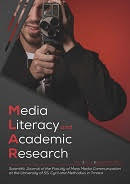
Keywords: Media Literacy; Media Messages; Fake News; Media Manipulation; Media Perspective
Nowadays initiatives in the fields of media literacy such as youth participation, teacher training and curricular resources, parental support, policy initiatives, and evidence base construction - are very successful ingrowing the level of the critical thinking of the participants. However, there are still a few areas which need to be guided. Authors Monica Bulger and Patrick Davison make five recommendations for the development of the future of media literacy programming for educators, legislators, technologists, and philanthropists. On the other hand the report also warns against the contemporary treatment of media literacy as a panacea - in the way of how to deal with fake news.
More...
Keywords: culture; traditions; Blaj; Iacob Mureșianu; piano; folklore;
I have written this article bearing in mind the musical education in Blaj. It includes social and historical specific to Iacob Mureșianu’s years of professional practice in Blaj; it lists cultural and musical personalities shaped by that cultural centre. Moreover, it covers the stages specific to his work as a teacher, composer, musical education organizer, promoter of authentic folklore. In addition, the article reviews his piano compositions that served as a didactic material, but also as concert pieces. The influence of the Romanian folk music predominates, even though he did some of his musical studies abroad. The portray of composer Iacob Mureșianu is crayoned in the context of his family, with the influences, ideas and ideals instilled by its members. The pages of the article will, however, mention the close connection the musician Iacob Mureșianu had with his father, journalist Iacob Mureșianu.
More...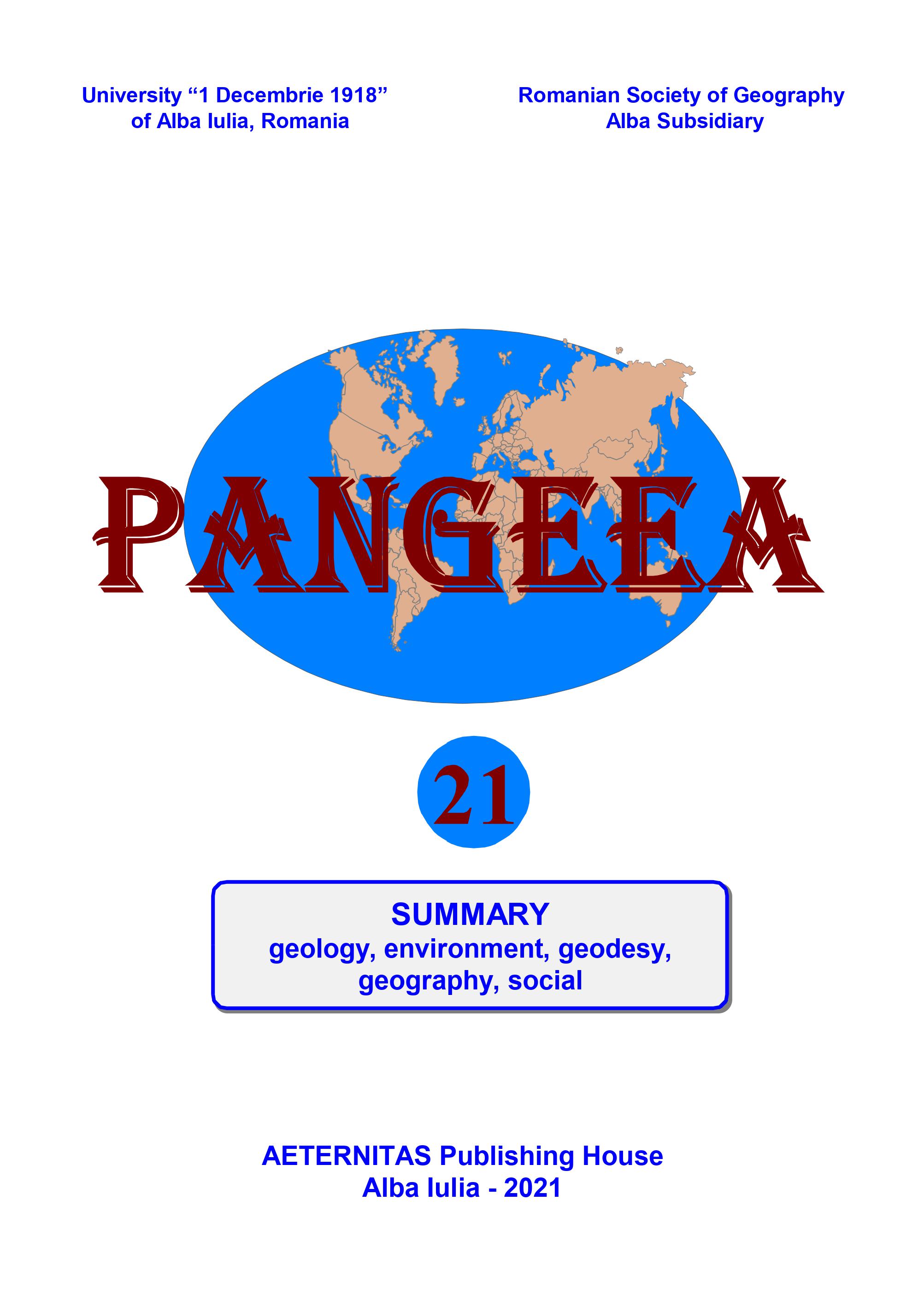
Keywords: cadastral sector; local administrative units (LAUs);
In order to prepare the cadastral technical documentation for land registration, several stages must be completed. This documentation is set up after field measurements have taken place, after data has been processed and the cadastral plan related to a cadastral sector from a territorial administrative unit (LAU) has been obtained.
More...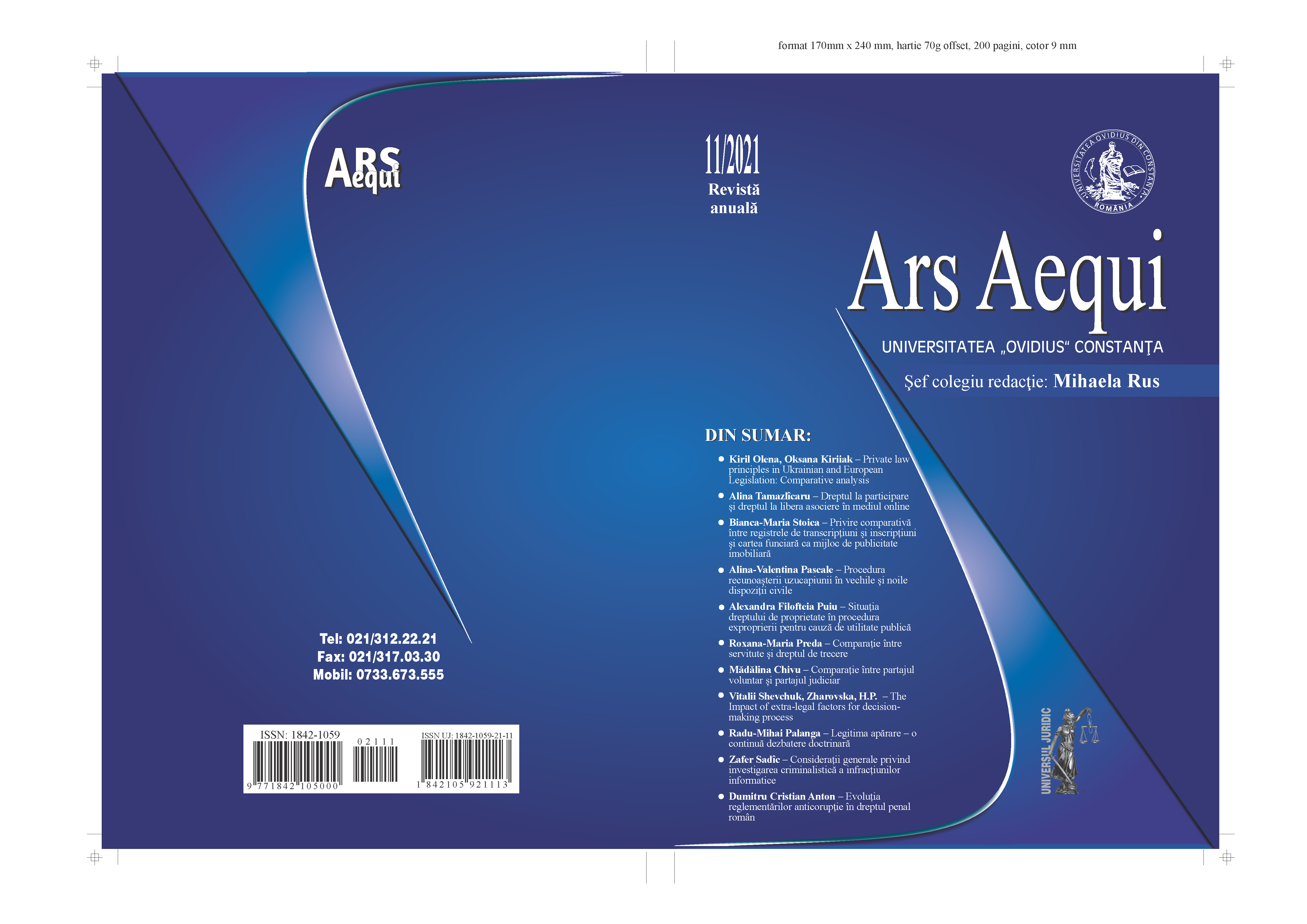
Keywords: public consultation; Covid-19; Government; health sector;
After the establishment of the state of emergency on the entire territory of Romania, for a period of 30 days, the Ministry of Internal Affairs established an inter-institutional mechanism for the implementation and reporting of the measures related to the fields provided in Decree no. 195/2020. The provisions included in the decrees establishing and prolonging the state of emergency were implemented by 10 military ordinances and other normative acts issued by the Government. The resources needed to implement the measures adopted in the areas have been provided by a first budget rectification for 2020 and supplemented by the use of European funds. In the study, we aimed to analyze the social perception of the population regarding the Government's measures during the Covid-19 pandemic. Most respondents rated the Government's communication as effective in providing the information needed to protect themselves and others from Covid-19 as effective. Respondents in the medical profession and in hospitals have been shown to be most satisfied, but there are also people who have little or no confidence in how this crisis has been handled by Government and Ministries, respectively. On the other hand, when asked if the government made sure that health workers had the personal protective equipment they needed to permanently protect them from COVID-19, most respondents disagreed and strongly disagreed, respectively, and strongly disagreed. few agree or totally agree.
More...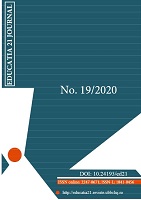
Keywords: competences; curricular paradigm; the model of personal development; multimodal text; Romanian language and literature curriculum;
The new pedagogies have forced a rethinking of the educational system, including the curriculum. The curricular model of personal development, dominant in the school curricula applied in the gymnasium, shifts the focus to the student, favors active-participatory methods and favors reflection on oneself, on others and on the world. Although there is more talk now about this curricular model, it is recurrent in visions of education from Aristotle to Dewey, being explicitly found in Bain's vision of “exceptional learning”. The inclusion of the multimodal text in the Romanian language and literature curriculum for the gymnasium, built on the curricular model of personal development, is justified precisely because it stimulates self-knowledge, understanding of the world and creativity. Although the concept of multimodal text is present in the school curriculum, including at the level of competences, textbooks do not pay much attention to it.
More...